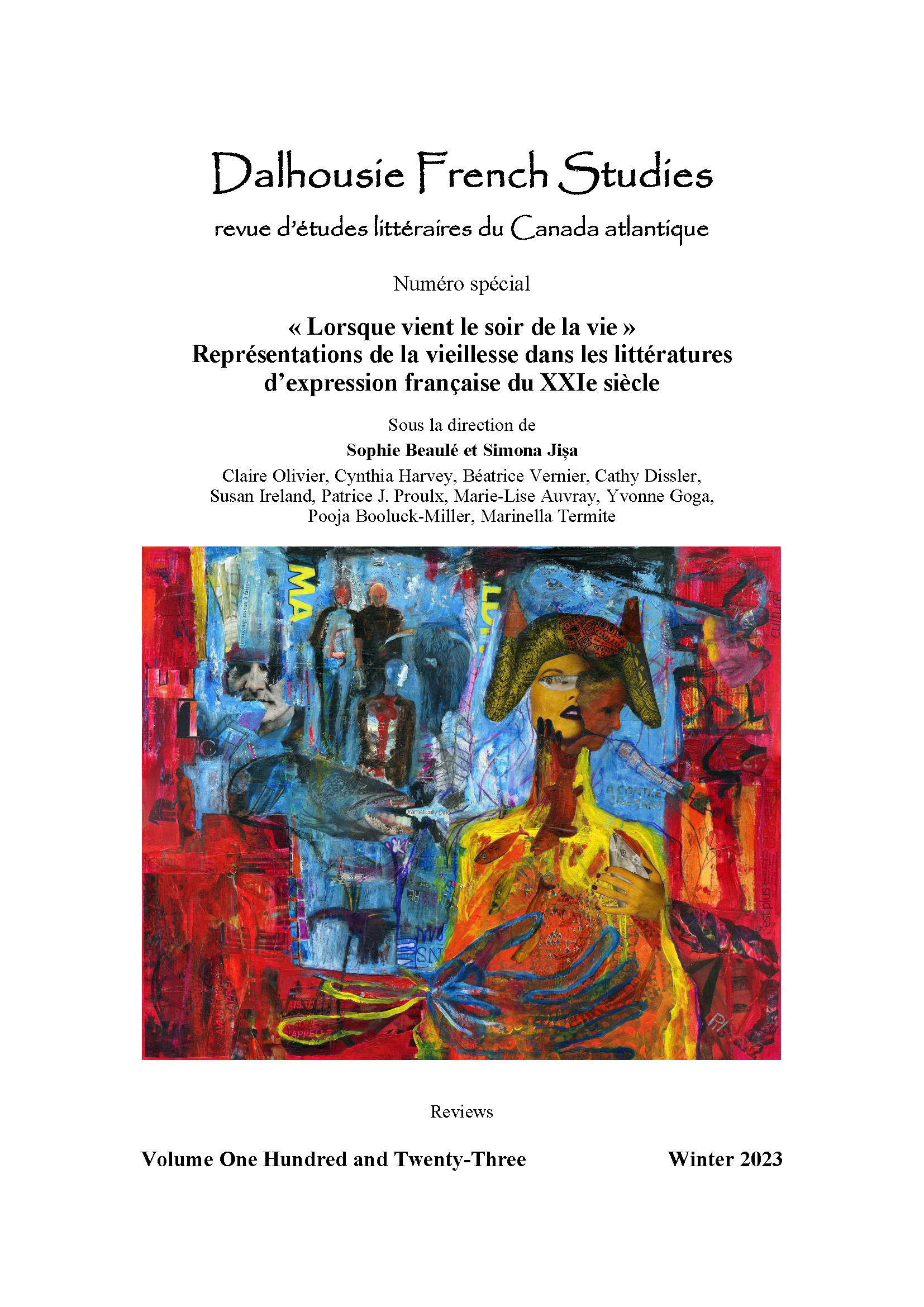On n’est pas là pour disparaître ou les voix de la vieillesse
Abstract
On n'est pas là pour disparaître (We Are Not Here To Disappear), Olivia Rosenthal's tale can be understood and heard as a rallying cry, as an ultimate protestation. "Can be heard" as it is indeed a polyphonic fiction, following the journey of a septuagenarian, Mister T., suffering from the A disease. Voices take turns to discuss Mister T.'s state ; to diagnose his disease, to observe, to question, to accuse, to communicate the suffering of this father, this husband, this elderly man who spent all his time in geriatric services and then finds himself having to stay in a retirement home where he forgets everything little by little, even his old age. These voices elude the readers and the fiction establishes a kind of intermittent confusion which does contravene the structure of the tale. This article studies the way in which Olivia Rosenthal manages to implement the injunction of tale's title. To this end, it interrogates the narrative and poetic methods allowing old age and the elderly man to be present even though the latter seems to be disappearing because of the continued attacks of the former.


